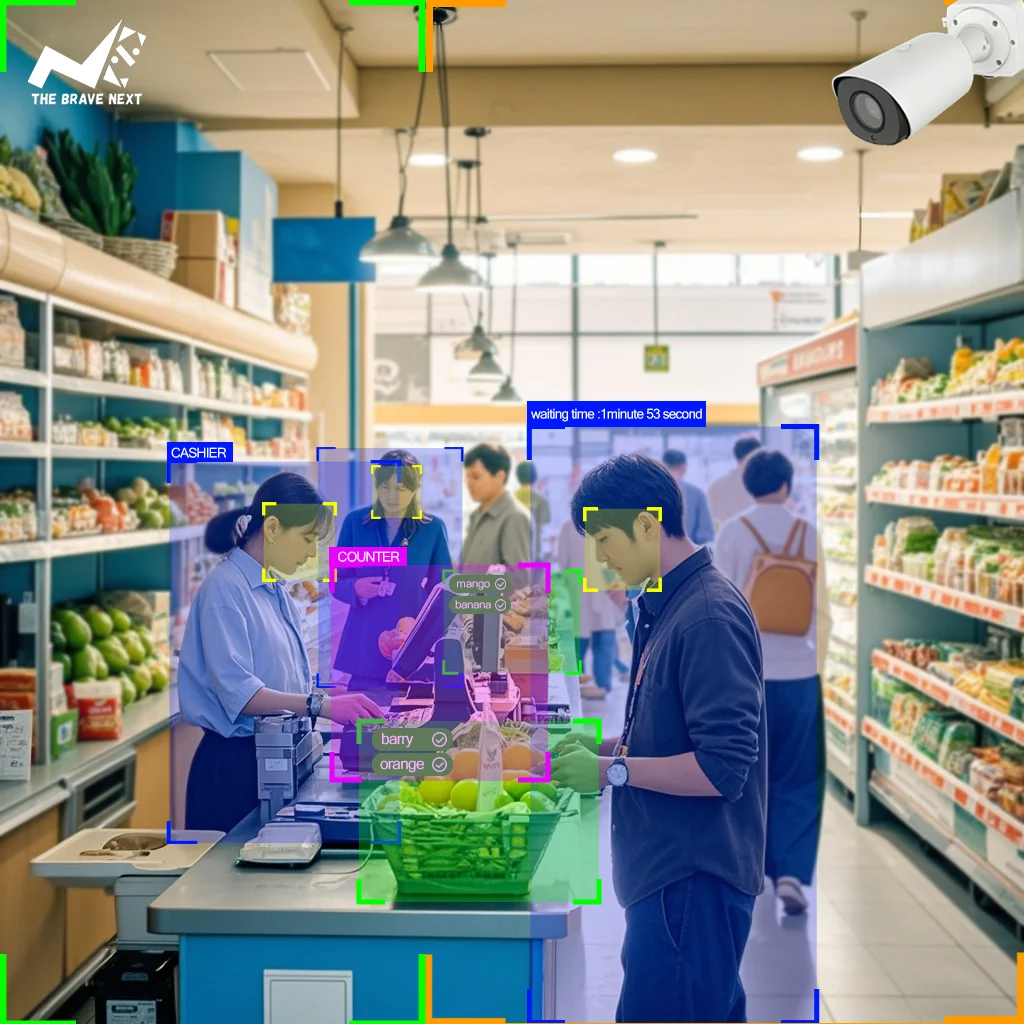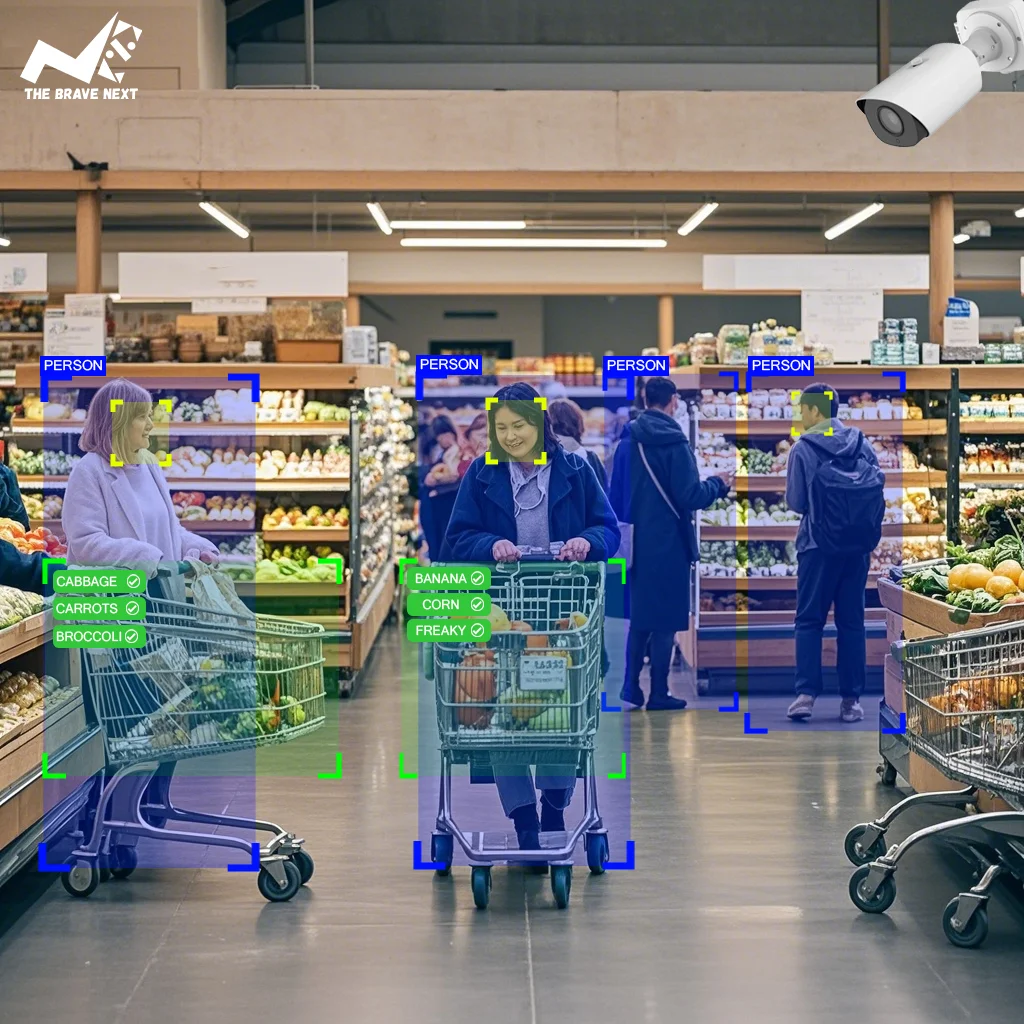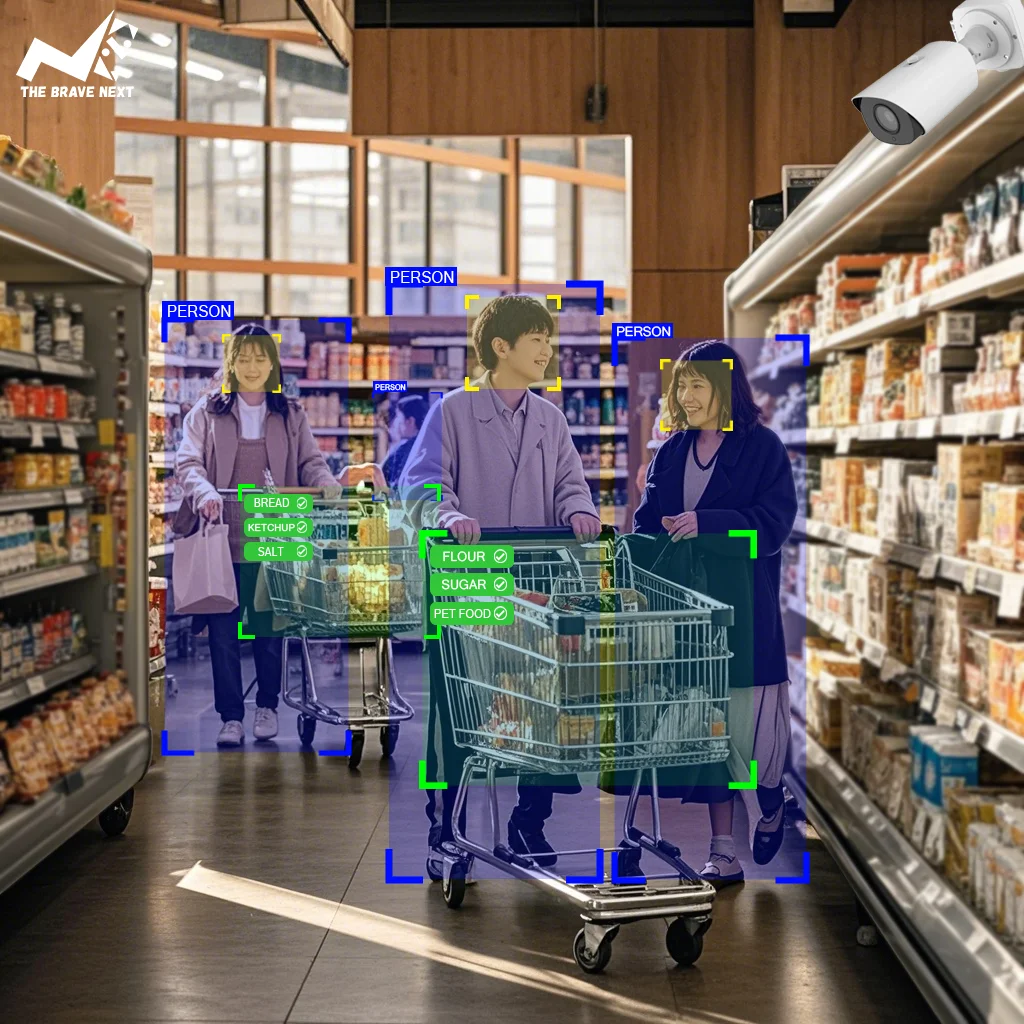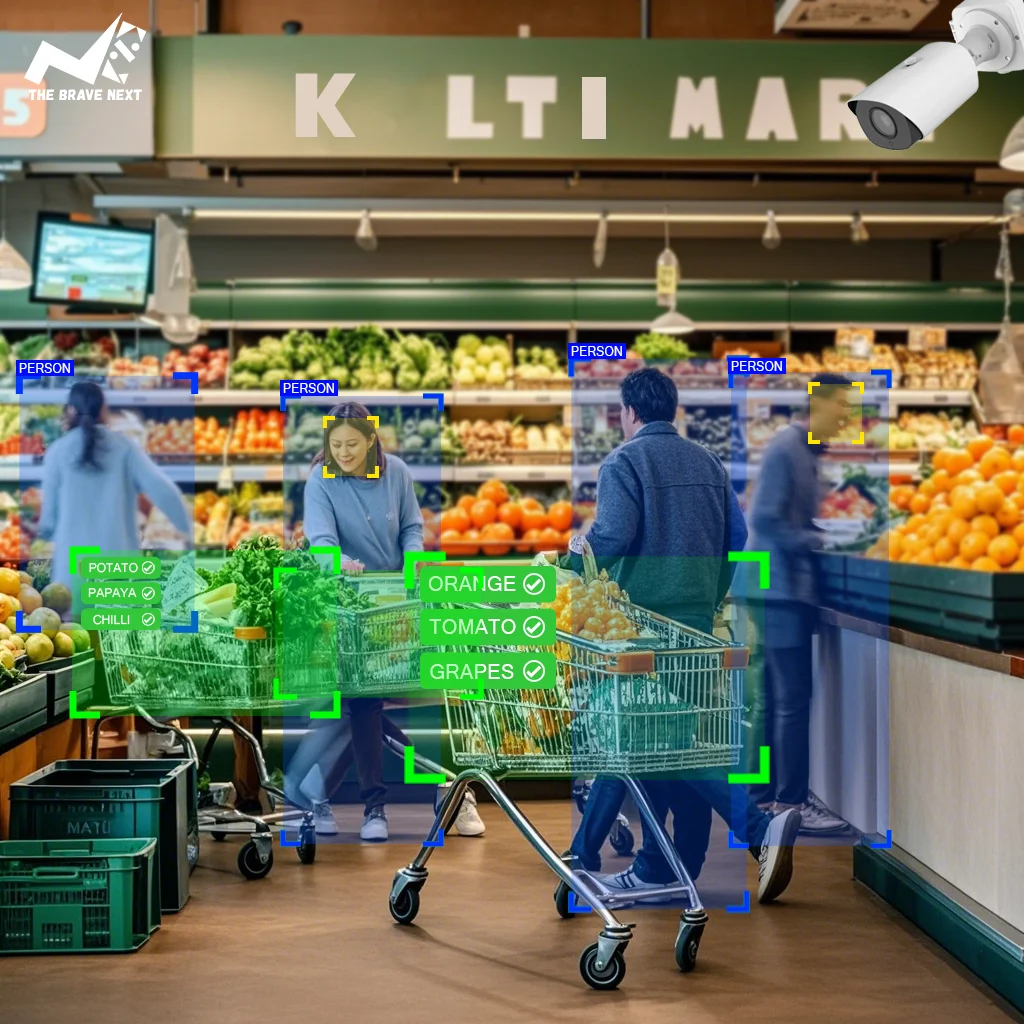



The retail industry has always been dynamic, constantly evolving to meet customer demands and market trends. In recent years, Artificial Intelligence (AI) has taken the forefront in revolutionizing retail operations, offering solutions that not only enhance customer experiences but also optimize internal operations. Retail monitoring systems powered by AI are transforming how businesses operate by saving time, reducing costs, and improving the overall customer experience. This blog explores how AI detection and automation in retail are changing the game for both businesses and consumers.
AI-powered retail monitoring systems are increasingly becoming a vital part of the retail landscape. These systems use a combination of sensors, cameras, machine learning algorithms, and predictive analytics to track everything from inventory levels to customer behavior. AI is capable of collecting and analyzing vast amounts of data in real-time, giving retailers the insights they need to improve decision-making and optimize both customer-facing and back-end operations.
AI can monitor various aspects of the retail environment, from tracking customer movements within the store to ensuring that the right products are always in stock. By understanding customer preferences and behaviors, AI helps retailers stay ahead of the competition, offering personalized experiences while also streamlining operations for greater efficiency.
One of the most significant advantages of implementing AI in retail monitoring systems is the ability to save time and reduce costs. Let's explore how AI automation delivers these benefits across different aspects of retail operations.
AI-driven systems can significantly streamline the checkout process, eliminating the need for manual scanning or human intervention. Automated checkout systems equipped with computer vision and machine learning algorithms can detect items in a cart, calculate the total cost, and even apply discounts in real-time, making the entire process faster and more accurate. Customers no longer need to wait in long lines, and businesses can operate with fewer staff at the checkout counter, reducing labor costs.
AI systems track customer behavior by analyzing how long customers linger in certain areas of the store, which products they pick up or inspect, and which items end up in their cart. By understanding these patterns, retailers can adjust product placements, optimize store layouts, and personalize marketing efforts. For instance, if customers spend more time in a specific aisle, AI can prompt the business to place higher-margin or promotional products in that section to maximize sales.
AI is capable of automating a variety of repetitive administrative tasks, freeing up employees to focus on customer-facing roles. For example, AI systems can monitor employee performance, track store security, and even manage stock replenishment, reducing the time spent on manual, time-consuming tasks. With fewer administrative duties, employees can devote more time to assisting customers, handling complex queries, or improving the overall store experience.
AI can also track customer in-and-out timing, giving retailers critical insights into how long customers spend in the store and which areas attract the most attention. By analyzing this data, businesses can adjust store layouts, optimize staffing levels, and improve product placement based on customer preferences. This real-time tracking helps retailers enhance their operational efficiency and ensures that the store environment is always aligned with customer needs.
For example, if AI detects that customers spend more time in a particular section of the store, retailers can increase the stock of popular products in that area or place promotional items to encourage additional purchases. Similarly, AI can identify the best times for foot traffic, enabling businesses to optimize staff scheduling to ensure that enough employees are available to assist customers during peak hours.


AI integration allows retailers to create a seamless, personalized shopping experience for customers. By analyzing purchase history and behavior patterns, AI systems can recommend products tailored to individual preferences, enhancing the likelihood of additional sales. For instance, if a customer frequently buys a certain brand of coffee, the system may suggest complementary products, such as a new flavor or coffee-making accessories.
Moreover, AI-powered systems can assist customers in real-time by providing virtual assistance, answering product queries, and guiding them to specific aisles. This level of personalization not only boosts customer satisfaction but also fosters loyalty, as customers feel more valued and understood by the brand.
AI-driven retail monitoring systems automate the bill payment process, ensuring faster, more accurate transactions. AI-powered self-checkout systems scan items, calculate the total, and even apply discounts or loyalty rewards, all without human involvement. This reduces wait times, enhances the shopping experience, and minimizes the chance of human error during checkout.
Additionally, AI systems securely store transaction data, allowing businesses to track customer purchase histories, monitor inventory levels, and analyze sales trends. By storing this valuable data in a centralized database, retailers can identify patterns, forecast demand, and make data-driven decisions that improve inventory management, marketing strategies, and overall operations.
AI systems can enhance customer service by monitoring the presence of receptionists and providing real-time assistance when needed. For instance, if the system detects that the receptionist is unavailable, it can alert staff members to step in or direct customers to a virtual assistant for support. This ensures that customers never feel unattended to and can receive prompt assistance for their inquiries, improving the overall store experience.
AI-powered chatbots and virtual assistants are increasingly being integrated into retail environments to provide customers with immediate support, answer frequently asked questions, and even guide them to products or promotions. These AI tools reduce wait times, enhance convenience, and allow customers to quickly find the information they need without waiting for human assistance.
The future of retail monitoring systems powered by AI is promising. As AI technology continues to evolve, retailers can expect even more advanced systems that not only improve operational efficiency but also provide deeper insights into customer behavior and market trends. AI will continue to help businesses predict customer demand, optimize inventory, and personalize the shopping experience in real time.
As businesses embrace AI-driven solutions, they will be able to create smarter, more efficient operations that enhance customer satisfaction and loyalty. In an increasingly competitive retail environment, AI-powered monitoring systems will become an essential tool for businesses looking to stay ahead of the curve.
AI personalizes shopping by analyzing customer behavior to recommend products, streamline checkouts, and provide real-time assistance, enhancing convenience and satisfaction.
AI automates tasks like inventory management and checkout, optimizes staffing, and prevents stockouts, reducing labor costs and waste.
AI detects suspicious behavior and potential theft in real-time, alerting security personnel, and helping minimize loss and enhance store Environment Health Safety (ehs).
Please send your query or requirements in detail via whatsapp, and we will respond shortly.
Thank you!